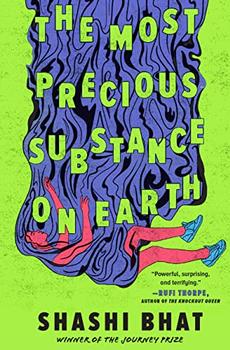Summary | Excerpt | Discuss | Reviews | Beyond the book | Read-Alikes | Genres & Themes | Author Bio

Fiction
by Tony TulathimutteFrom the Whiting and O. Henry–winning author of Private Citizens ("the first great millennial novel," New York Magazine), an electrifying novel-in-stories that follows a cast of intricately linked characters as rejection throws their lives and relationships into chaos.
Sharply observant and outrageously funny, Rejection is a provocative plunge into the touchiest problems of modern life. The seven connected stories seamlessly transition between the personal crises of a complex ensemble and the comic tragedies of sex, relationships, identity, and the internet.
In "The Feminist," a young man's passionate allyship turns to furious nihilism as he realizes, over thirty lonely years, that it isn't getting him laid. A young woman's unrequited crush in "Pics" spirals into borderline obsession and the systematic destruction of her sense of self. And in "Ahegao; or, The Ballad of Sexual Repression," a shy late bloomer's flailing efforts at a first relationship leads to a life-upending mistake. As the characters pop up in each other's dating apps and social media feeds, or meet in dimly lit bars and bedrooms, they reveal the ways our delusions can warp our desire for connection.
These brilliant satires explore the underrated sorrows of rejection with the authority of a modern classic and the manic intensity of a manifesto. Audacious and unforgettable, Rejection is a stunning mosaic that redefines what it means to be rejected by lovers, friends, society, and oneself.
While some stories are more dynamic and some characters more compelling than others, the collection is uniformly hilarious and Tulathimutte exhibits exceptional powers of description. The male feminist discovers an online community with whom he identifies — those "willing to declare unapologetically that narrow-shouldered feminist men are the most oppressed subaltern group." Alison of the one-night stand adopts a raven, which "turns out to be a flesh-ripping fiend with a knife for a face" that "smells like soiled hospital clothes" and survives on a diet of "wet microwaved rats." The author cleverly ends the collection with a story called "Rejection," which feigns to be a letter from a publisher rejecting the manuscript that has become the very book the reader holds in their hands. It is a winding exercise in self-referential and self-deprecating humor but it also astutely explores the discomfort surrounding author intention that readers might feel after engaging with these stories. To what degree are we supposed to feel empathy toward these characters? To what degree are we meant to simply laugh at their failures and fates?..continued
Full Review
 (723 words)
(723 words)
(Reviewed by Lisa Butts).
 The final, titular story of Tony Tulathimutte's collection Rejection is styled as a letter from a publisher explaining to the author why they will not be publishing the book. This form is used as a means of exploring the stories within from the perspective of a potential critic, and is used to humorous effect as the author considers his own biases and motivations for writing what he did.
The final, titular story of Tony Tulathimutte's collection Rejection is styled as a letter from a publisher explaining to the author why they will not be publishing the book. This form is used as a means of exploring the stories within from the perspective of a potential critic, and is used to humorous effect as the author considers his own biases and motivations for writing what he did.
Virtually every author has dealt with rejection from a publisher. Famously, it takes a long time to find the right home for a book, and that path is frequently paved with "no"s. But rejection is often less about a piece of writing not being good enough and more about an individual publisher or editor's particular taste and needs.
In a 2019 ...

If you liked Rejection, try these:

by Fyodor Mikhailovich Dostoevsky
Published 2024
A young, lonely man strolls the streets of St. Petersburg contemplating his solitude when he happens upon a young woman in tears.

The Most Precious Substance on Earth
by Shashi Bhat
Published 2023
Journey Prize winner Shashi Bhat's sharp, darkly comic, and poignant story about a high school student's traumatic experience and how it irrevocably alters her life, for fans of 13 Ways of Looking at a Fat Girl, Girlhood, and Pen15.